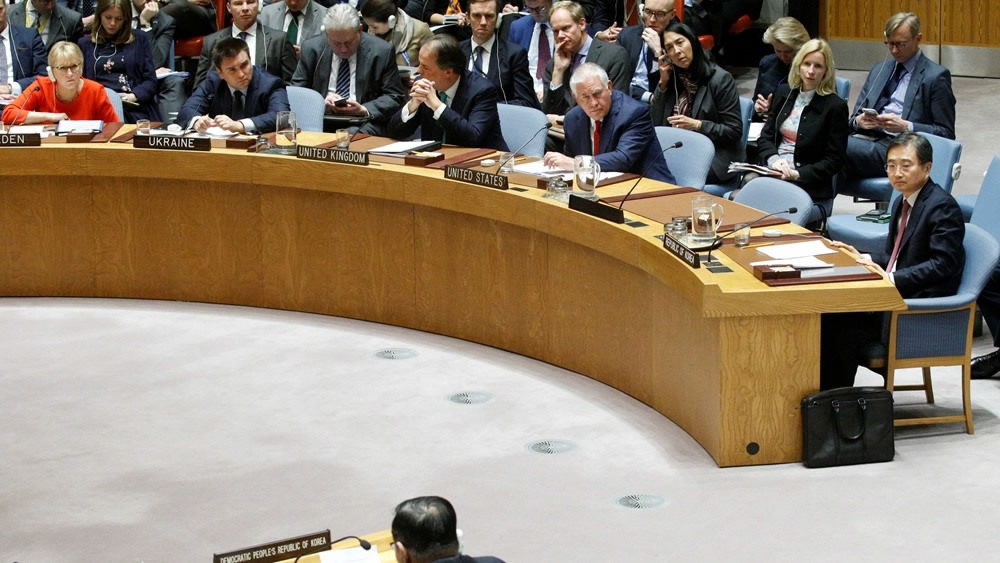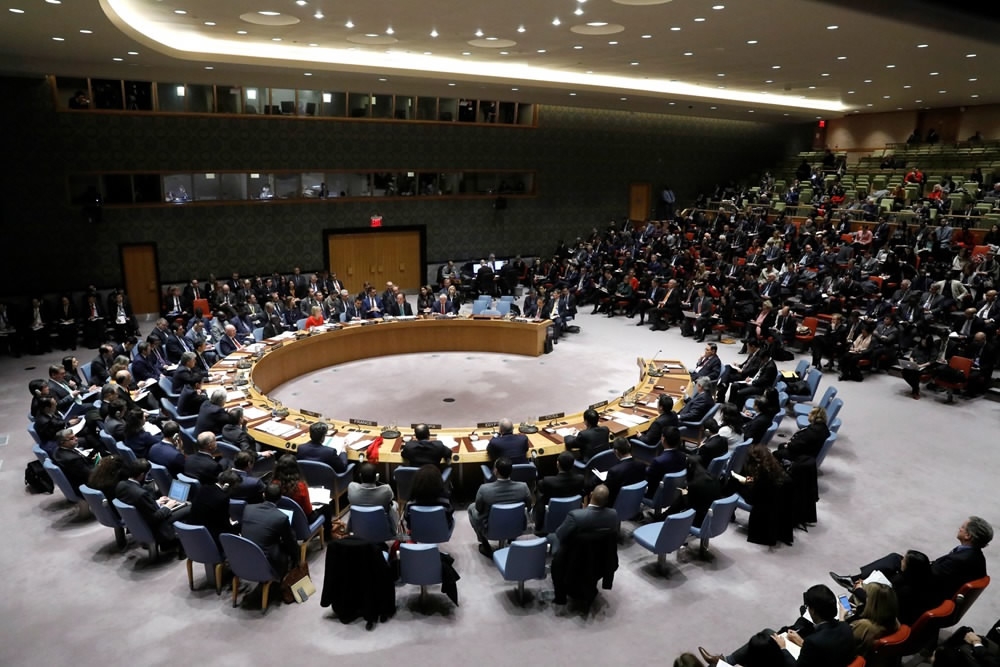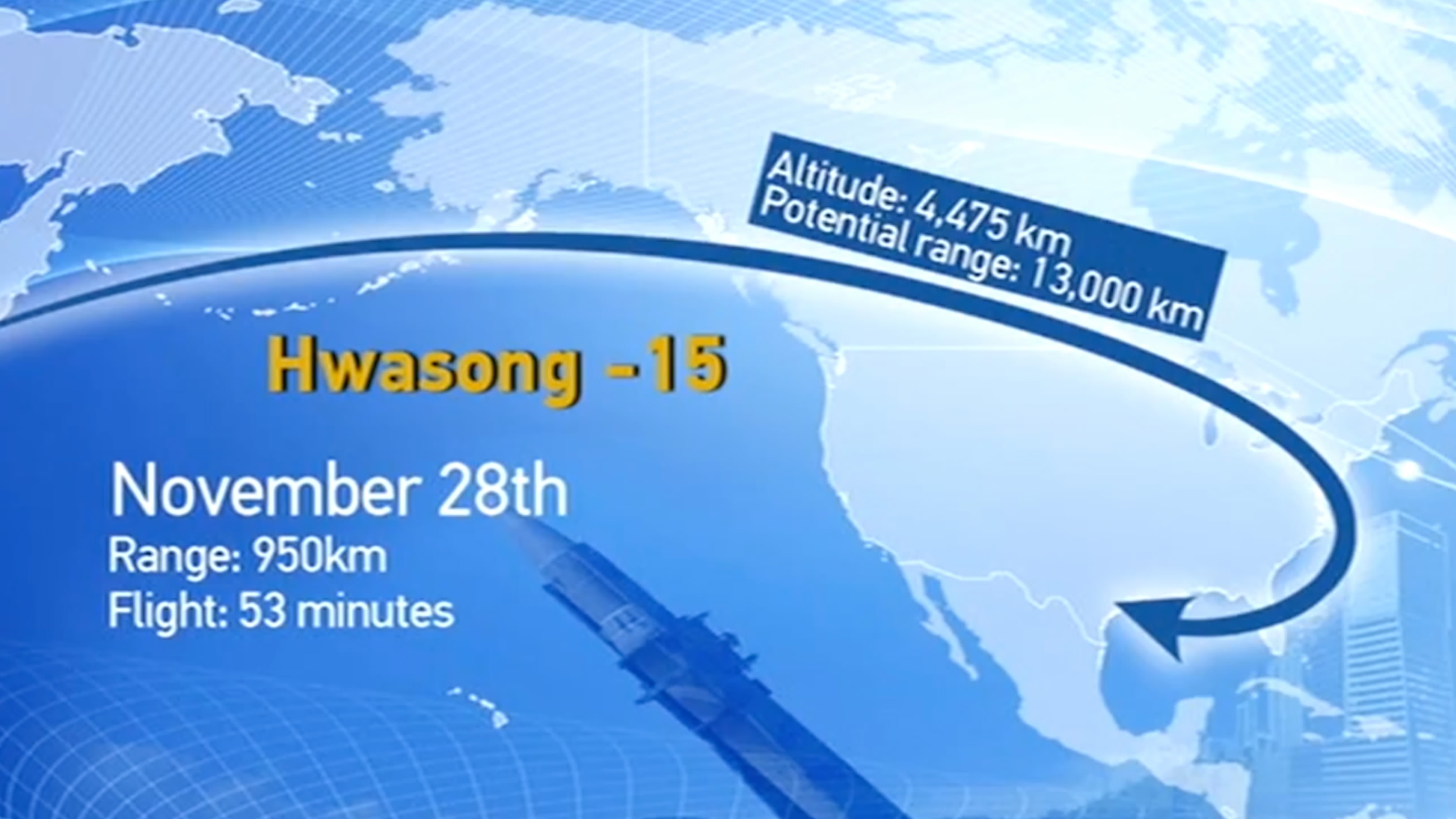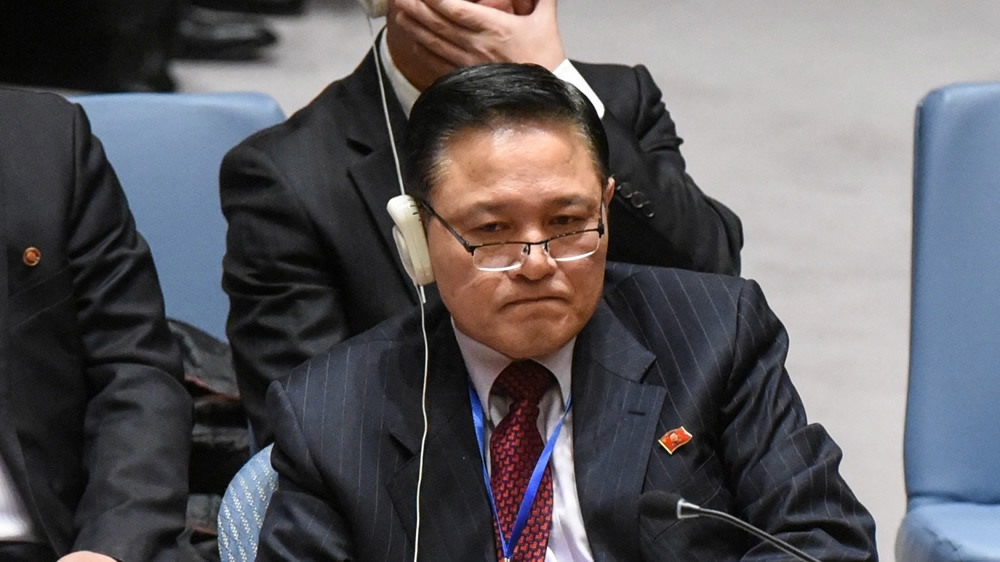
Politics
15:15, 16-Dec-2017
Reporter's diary: Patience with DPRK is running thin
By John Terrett

Friday December 15 was a freezing day in New York and not even the eccentric holiday lights along Sixth Avenue in Midtown could penetrate the gloom.
It's a pall that extended all the way over to the United Nation's headquarters at Turtle Bay on Manhattan's east side, where once again the Security Council was discussing the Democratic People's Republic of Korea (DPRK) and its nuclear ambitions.
It's a subject that's come up a million times before and seldom seems to go anywhere - or at least just goes round and round and round.

The United Nations Security Council meets on DPRK's nuclear program at UN headquarters in New York, US, December 15, 2017. /Reuters Photo
The United Nations Security Council meets on DPRK's nuclear program at UN headquarters in New York, US, December 15, 2017. /Reuters Photo
I've been reporting from the UNHQ on and off for the past ten years now and I sense that patience is running a little thin when it comes to Kim Jong Un and his missiles.
The Japanese are in the chair as President of the Security Council for the month of December and we know they're just as frustrated with him as China and the US are.
Nov. 28 DPRK test
They called the meeting to discuss Kim's November 28th missile test.

It was "billed" as a gathering of foreign ministers – but seemed to lack many of the world's best known heavy diplomatic hitters as far as I could see – no Wang Yi (Chinese foreign minister), no Boris Johnson (British foreign secretary).
'Sustained cessation'
In a rare appearance in the Council chamber, US Secretary of State Rex Tillerson called for a "sustained cessation of North Korea's [DPRK's] threatening behavior" so that talks may begin once again.
"North Korea [DPRK] must earn its way back to the table. The pressure campaign must and will continue until denuclearization is achieved", he said.

DPRK hits back
The DPRK ambassador to the UN didn't mention Tillerson's call for a halt to testing when he was invited to join the session.
Ambassador Ja Song Nam said the session was, "a desperate measure plotted by the US terrified by the incredible might of our Republic that has successfully achieved the great historic cause of completing the state nuclear force."

Tillerson's dig at China and Russia
Tillerson also urged China and Russia to boost pressure on the DPRK. He said they should go beyond implementing sanctions and he called on Beijing to halt all exports of crude oil to the DPRK and for Moscow to throw out DPRK guest workers who, he said, were working in slave conditions in Russia.
Russia's Ambassador Vasily Nebenzya said Tillerson's claim wasn't true.
China: Passing blame not helpful
China's Deputy UN Ambassador Wu Haitao said: "It's not helpful to impose on any one party the responsibility for resolving the problem." He said all parties must implement UN sanctions but warned against unilateral sanctions that only hurt the unity of the Security Council.

Chinese envoy to the United Nations Wu Haitao delivers remarks during a UN Security Council meeting at UN headquarters in New York, US, December 15, 2017. /Reuters Photo
Chinese envoy to the United Nations Wu Haitao delivers remarks during a UN Security Council meeting at UN headquarters in New York, US, December 15, 2017. /Reuters Photo
"The parties should move toward each other instead of engaging in mutual blaming," he said.
And so the meeting ended without reaching any firm conclusions.
It was always likely to be so, but at least it afforded a chance to gauge how the international community is feeling about the DPRK just ahead of the Christmas and New Year season - and how it might feel in early 2018.
11001km

SITEMAP
Copyright © 2018 CGTN. Beijing ICP prepared NO.16065310-3
Copyright © 2018 CGTN. Beijing ICP prepared NO.16065310-3